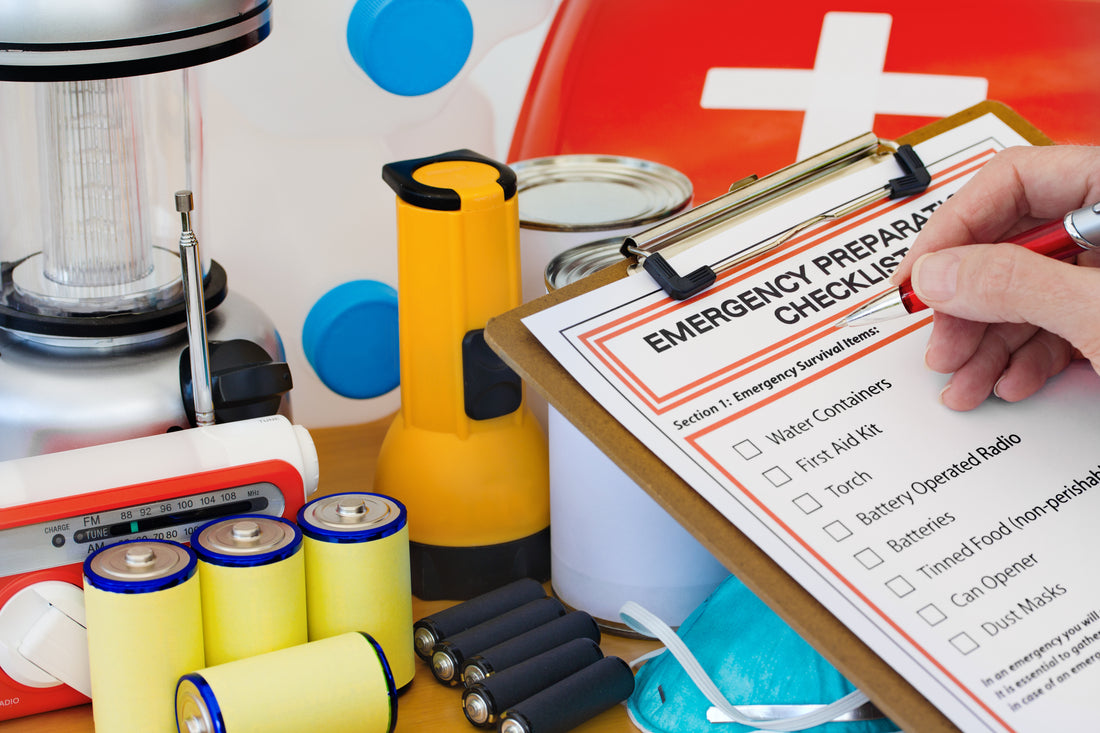
Prepping
Dr. Linda HancockIt doesn’t matter where you turn, people are talking about global conflicts, supply chain problems, super inflation and devaluing of assets such as dollars, crypto currencies and the stock market. A few months ago, I never dreamed that we would be seeing scores of bloggers talk about the need for “prepping”.
I’m from an age when we looked after the environment by turning off lights, picking up garbage and not letting the faucet run longer than needed. We also planned for emergencies by having flashlights, band aids, and a rain barrel to collect water. Most families grew large gardens and ordered meat for the freezer directly from the farmer. Because stores were closed in the evenings and for two days each weekend, we had a fridge and pantry with foods that would be needed. We always “prepped” but just didn’t call it that.
Things are quite different now and fear seems to have pushed people into a panic mode where they feel that we need to have extra caution in case “something happens”. They don’t know what that might be and certainly don’t know how to move from worry into action.
I have been listening to a number of experts who talk about the importance of being prepared in case of a global emergency. One of my favourites is market analyst Lynette Zang who states that there are six categories that always need to be considered:
- Food – What would you do if items that you need for your family were not available? The catastrophic rush for toilet paper a few months ago has increased people’s urgency to be prepared and should serve as a warning for us. Do you have some basic items that could take you through a few weeks if supplies are unavailable? Something to think about.
- Water – It is easy to take this for granted. We just assume that turning on a tap or flushing a toilet will always give us good results. Our bodies are approximately 80% water. What plans do you have to ensure that you have clean water at all times even if there is a regional problem with the system?
- Energy – In the past year, the electricity in the area where I live has gone off three times – not just for minutes, but for hours. I have some candles and matches but definitely could not keep my freezer running or deal with 30 degrees below weather for very long. My daughter lives about twenty minutes from here and they have a wood burning fireplace and a load of wood but that wouldn’t protect my condo. Do you have alternate energy sources that could keep things running for a few days?
- Shelter – I watched a fellow the other day who stated that setting up a tent in one room of your house can be a good idea if you don’t have heat. Most of us have a home but what will happen to those who are homeless if there is a crisis, and we are all panicking to protect ourselves?
- Security – I don’t want to sound negative, but we are all so dependent upon digital banking through computers, debit and credit cards. Do you have an alternative method for purchasing goods if necessary? Some people call physical gold and silver “real money”. Lynette says, “If you don’t hold it, you don’t own it”. Do you have things of value you could use to barter or trade to combat financial difficulties if forced to do so?
- Community – Out of all the categories mentioned, most people place this one as a priority. When trouble comes, people can share their skills to help each other, and it is therefore important to have a group of individuals who you trust in your life.
Never, ever did I think that I would be writing an article about what might happen if systems that we know and depend upon collapse. But this is a raging topic, and I just can’t ignore it.
The way that I live my life is to “be prepared for the worst and hope for the best”.
Maybe a better motto is one that we can borrow from the Boy Scouts “Be prepared”.
We sure don’t want to go through that toilet paper scramble again, do we?
